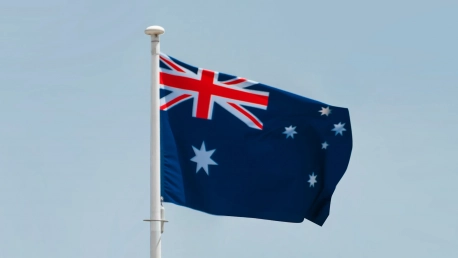In today’s digital age, the influence of online platforms on public opinion is more significant than ever, raising serious concerns about the prevalence of misinformation. Australia finds itself at a pivotal juncture, addressing the challenge of controlling the spread of false information across the expansive networks run by major tech entities. The existing self-regulation by these platforms has come under scrutiny, with increasing demands for governmental action. Questions are being raised about the effectiveness of current voluntary measures and whether stricter oversight is necessary to protect the public discourse. As the debate continues, Australia must navigate the complexities of free speech, the role of tech giants, and the need to maintain a trustworthy information ecosystem. The path forward is uncertain, but the urgency for a solution grows as misinformation continues to shape perceptions and conversations in the digital realm.
The Battle with Meta Over Misinformation
Reset Australia’s Stand
Reset Australia is actively criticizing Meta for how it handles the spread of misinformation online, pointing out a significant discrepancy between its commitments and actions. Although Meta is a signatory to the Australian Code of Practice on Disinformation and Misinformation, advocating for robust content moderation, the reality seems to fall short. Reset Australia has highlighted that only a minor percentage of content deemed false by fact-checkers is actually marked as such on the platform. This issue underscores a larger struggle within tech self-regulation, as Meta’s current systems appear insufficient in curbing the dissemination of repurposed or subtly modified deceptive content. Doubts persist concerning the capacity and willingness of tech giants like Meta to effectively self-regulate and uphold their responsibilities in the battle against the manipulation of information in the digital space.
The DIGI Rejection
Reset Australia lodged a complaint, which, after review by the Digital Industry Group Inc (DIGI)’s subcommittee, was not upheld. Concerns have been raised about the impartiality of DIGI’s subcommittee as it is funded by the industry. This has called into question the efficacy of self-regulation in the digital space, especially when there might be conflicting interests. DIGI’s alignment with Meta in their stance against Reset Australia’s concerns accentuates this issue. The underlying problem, as pointed out by Reset Australia, is how such close ties between regulatory entities and the industry might undermine the oversight needed to tackle issues like misinformation. The legitimacy of a self-regulatory model depends on the independence of its oversight mechanisms; in this case, the effectiveness of that model is under scrutiny due to potential conflicts of interest.
The Government’s Response to Misinformation
The Need for Government Action
The existing self-regulatory frameworks for big tech have shown significant shortcomings, prompting calls for governmental oversight. The Minister in charge of Communications has recognized this concern, suggesting that the current voluntary approach might not be entirely effective against the considerable influence these tech giants wield. Voluntary codes often fall short in curtailing the rampant spread of misinformation. Consequently, there has been a growing consensus on the need for more stringent measures. Official intervention is being considered as a viable solution to set clear, enforceable rules that could better control the digital landscape and the veracity of information shared. This shift demonstrates an understanding that, without proper regulation, these powerful entities may continue to operate with too much freedom, potentially to the detriment of public discourse and trust.
Advocacy for a Regulated Framework
Reset Australia, with Alice Dawkins at the helm, is championing the push for government intervention in tech regulation. Their stance has intensified following the dismissal of their complaint and DIGI’s support of Meta, showcasing the inadequacy of the current regulatory framework. They call for the implementation of robust, enforceable regulations to hold tech giants accountable for their influence in the dissemination of information online. The Australian government’s recognition of these issues suggests that a more stringent regulatory landscape may emerge, aimed at safeguarding the veracity and trustworthiness of content on digital platforms. This move reflects a growing consensus on the necessity for an authoritative oversight mechanism in the digital age, balancing corporate freedom with societal protection.









